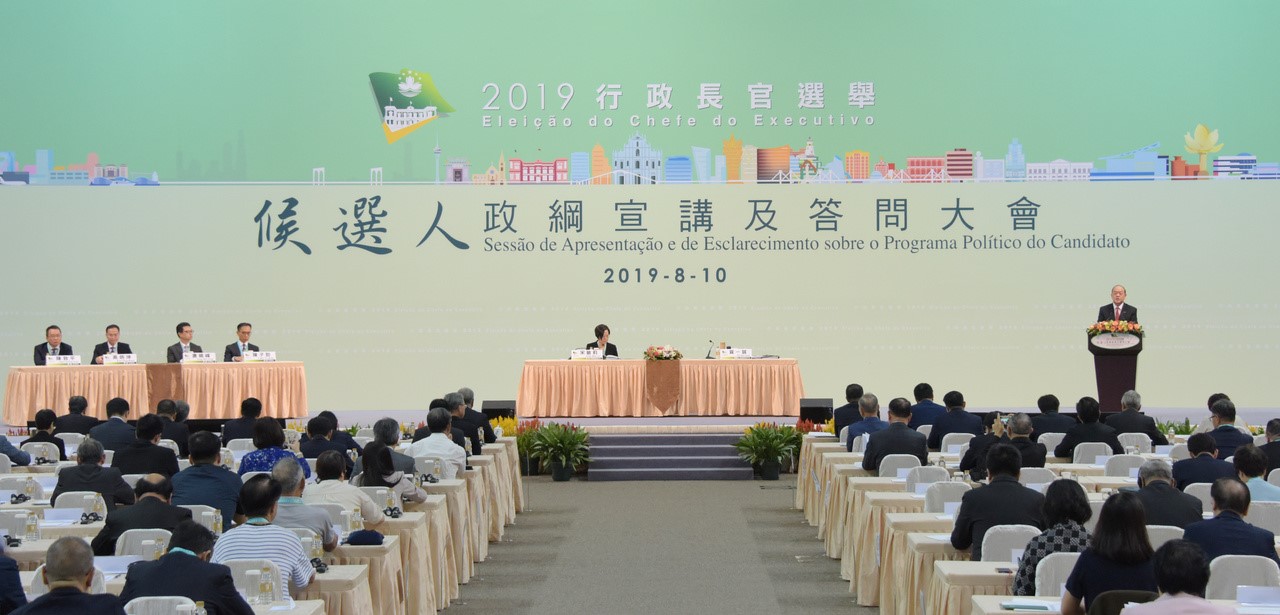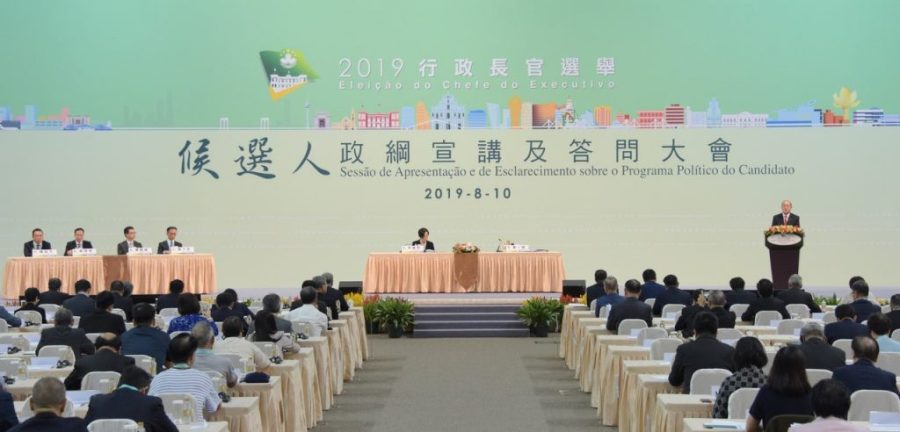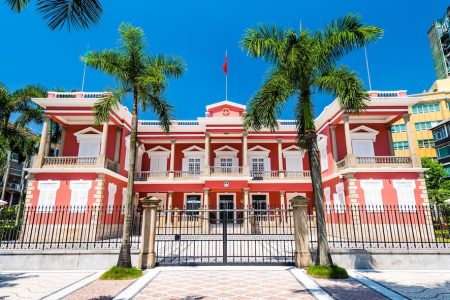Chief executive candidate Ho Iat Seng called on Saturday for the “healthy” development of the gaming industry and also for tightening its supervision.
Ho held a press conference after presenting his campaign platform to the Chief Executive Election Committee at the East Asian Games Dome and attending a Q&A session for the committee members.
Regarding the future of Macau’s three gaming concessions and three sub-concessions, a reporter asked Ho why in his platform and during the Q&A session he did not reveal much information about the matter. Ho pointed out in his reply that the six concessions-cum-sub-concessions have not expired yet, and a new law would have to be passed first, and only afterwards could the government decide on the further steps to be taken.
The concessions and sub-concessions expire in 2022. Any changes to the current gaming industry structure would require amendments to a special law on the gaming sector enacted in 2001. While the amendments would be proposed by Ho’s government, they would have to be presented to the legislature for debate and vote.
Ho also pointed out that since he is still candidate in the chief executive election, he should not talk too much about the issue, adding he hoped that the gaming industry could develop “healthily” in local society.
The chief executive election will be held on August 25.
Secondment as a possible solution
Meanwhile, asked about Macau’s large number of public servants and the organisation of the public administration, Ho said he would not increase the statutory number of staff employed by the public administration. He pointed out that there are about 38,500 public servants in Macau and that while some bureaus and similar entities lack staff, others are overstaffed. Ho said that one way to tackle the issue was to promote the secondment of staff from one entity to the other.
Ho also noted that such an arrangement would also provide more opportunities for public servants to study and work in different sectors of the public administration, as well as “optimise” coordination among different areas in the public administration and allow public servants to better understand the working mechanisms of different segments in the civil service.
According to Ho, the public administration currently comprises 66 directors of bureaus, offices and similar entities. Asked by a reporter if the number of directors was too high, Ho responded in the affirmative, but also pointed out that he would not make any changes before figuring out the functions and duties of the relevant entities.
Ho further pointed out that in his platform he mentions that he intends to set up a special office to study and research the public administration personnel issue, and to figure out which entities could be merged.
Only one candidate
Asked by a reporter about the fact the he’s the only candidate, Ho pointed out that in the 2nd, 3rd, 4th and 5th chief executive elections there also had been only one candidate, adding that when he was collecting his chief executive election nomination forms, each nomination was “valuable” and each nominator was “very important” to him.
Ho obtained 378 nominations from among the 400 members of the Chief Executive Election Committee, even though he had only needed 66.
Ho also pointed that during the nomination period, he had organised over 70 activities, and visited more than 70 civic groups, adding that over 5,000 people attended the events related to his nomination process, adding that he would continue to talk to different community groups during the election campaign to introduce his platform and “get close to citizens”.
The election campaign started on Saturday and will end on August 23.
Regarding the fact that the past three chief executive elections were “one-horse races”, Ho told the press conference that the chief executive election mechanism is regulated by the Macau Basic Law, pointing out that China is a unitary state, and Macau does not have the power to amend the Macau Basic Law.
Ho also said that how to “optimise” the chief executive election mechanism was something the government could consider.
‘Fair’ handouts
Asked by a reporter if he would continue the government’s policy of its annual wealth-sharing handout for residents, Ho replied he had noticed that there has been some dissent about the matter, such as that the handout should not be paid to local residents who do not live in Macau.
However, Ho underlined that there are many residents who are living and working in the cities of the Guangdong-Hong Kong-Macau Greater Bay Area (GBA) who used to work in Macau and thereby have contributed to local society so that it would be “impossible” to not let them benefit from the wealth-sharing policy.
Ho noted that the policy has been implemented for a decade and that it has been “an important measure” for low-income families, adding that in terms of how to promote the policy, the government would “figure out” the public expenditure involved and how to define who a Macau resident is.
According to the Macau Post Daily, Ho further noted that in this case, there was no “absolute fairness”, but he hoped to achieve “relative fairness” in the wealth-sharing matter.
(Macau News/The Macau Post Daily)






